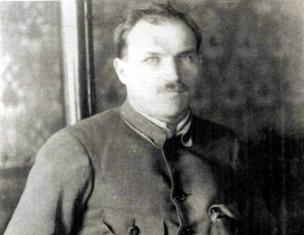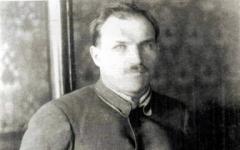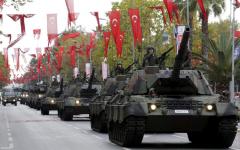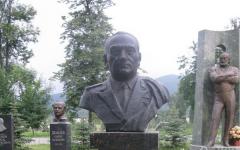Prophet Muhammad, may Allah bless him and grant him peace, was born in Mecca (modern Saudi Arabia) around 570 AD. This outstanding man- an example for each of us: prophet, ruler, philosopher, speaker, warrior, husband, friend, father, uncle, nephew, grandfather - whoever Muhammad was, may Allah bless him and welcome him, he fulfilled his role perfectly! He was a man full of love, patience, courage, wisdom, generosity, nobility... A man who inspired a million lives around the world.
In the Holy Qur'an the Almighty says:
« We sent you only as a mercy to the worlds" (Quran 21:107).
The prophetic mission of Muhammad, may Allah bless him and grant him peace, began at the age of forty (approximately 609-610 AD) and lasted 23 years (until 632 AD). From the darkness of ignorance, by the grace of the Almighty, he led people to the light.
Shortly before his death, the Prophet Muhammad, may Allah bless him and grant him peace, read his last sermon during the Hajj. It is known as "The Last Sermon". This was not only a reminder to followers, but also an important instruction. The last sermon marked the end of the prophetic mission.
The tenth year of the Hijri is notable for three important events: the last sermon delivered during the farewell pilgrimage to Mecca, the arrival of several delegations to announce the acceptance of Islam by them and their tribes, and finally, the mass conversion of people to the religion of Muhammad, may Allah bless him and grant him peace.
So, the Prophet performed the farewell hajj in the tenth year of the Hijri. This first and last Hajj of the Prophet (peace and blessings of Allaah be upon him) occupies an important place in the history of Islam. It was then that he demonstrated How Each of the rituals of Hajj, the fifth pillar of Islam, should be performed.
The last sermon took place on the ninth day of the month of Dhul-Hijjah (12th month lunar calendar) in 632 AD on Mount Arafat. Then a huge number of people made pilgrimage with the Prophet, may Allah bless him and grant him peace.
Last Sermon
Having praised the Almighty, the Prophet (peace and blessings of Allaah be upon him) said:
“O people, listen to me carefully, for I do not know whether I will be among you after this year. Listen to what I have to say and pass on my words to those who were unable to attend today.
O people, just as you honor the sacredness of this month, this day, this city, honor and consider sacred life and the heritage of every Muslim. Return what is entrusted to you to its rightful owners. Do not oppress others, then you will not be oppressed. Remember that you will certainly meet your Lord, and He will definitely ask you for your deeds. God has forbidden usury for you, so all usury is abolished. Your property, however, belongs to you. Do not cause injustice, and you will not be treated unfairly. The Lord decreed that there should be no usury, and Abbas ibn Abd al-Muttalib's interest was the first to be abolished.
Beware of Satan for the safety of your religion. He has lost all hope of leading you astray in big things, so don’t follow him in small things.
O people, you indeed have rights towards your women, but they also have rights towards you. Remember that you took them as your wife only with the permission of God. If they respect your rights, then they have the right to food, clothing and kindness. Treat your women well and be kind to them as they are your companions and loyal helpers. And it is your right: not to allow them to make friends with anyone whom you do not approve, just as you should never be unchaste.
O people, listen to me carefully: worship God, observe the five daily prayers, fast in Ramadan and pay zakat (purification alms). Perform Hajj if you have the means.
All humanity is from Adam and Eve. An Arab has no superiority over a non-Arab, and a non-Arab has no superiority over an Arab; white has no advantage over black, black has no advantage over white; (no one has superiority over another) except in piety and good character. Know that every Muslim is a brother to a Muslim, and that Muslims form one brotherhood. Nothing belonging to a Muslim will be lawful to another Muslim unless it was given freely and willingly. So don't be unfair to yourself
Remember: one day you will stand before God and answer for your deeds, so be careful not to stray from the path of piety after my departure.
O people, there will be no prophet or apostle after me, not a single new religion will arise. Therefore, listen to me, O people, and delve into the words that I convey to you. I leave you two things - the Quran and my example (Sunnah), and if you follow them, you will never go astray.
All those who listen to me must convey my words to others, and those to the next; and it may be that the latter will understand my words better than those who are listening to me now. O Allah, be my witness that I have conveyed your message to your people!
With these words the Prophet, may Allah bless him and grant him peace, concluded his Last Sermon. Then, on Arafat, a revelation descended:
« Today I have perfected your religion for your sake, completed My mercy upon you, and approved Islam for you as a religion." (Quran 5:3)
Even today, the Last Sermon of the Prophet Muhammad is transmitted to every Muslim in every corner of the world by all possible means of communication, Muslims are reminded of it in mosques and at lectures. Indeed, it is striking in its depth, touching upon important aspects of religion - the rights of God over man and the rights of people among themselves. Although the soul of the Prophet, may Allah bless him and grant him peace, has left this world, his words live in our hearts.
Islam has built a great civilization on the basis of ideological, legislative and ethical norms. A civilization that fully regulates the spiritual side of human life, as well as the material, while some religions and confessions see the path to human perfection in the renunciation of worldly goods and everything material, in depriving the body of even that without which it will experience great difficulties . If today's western civilization built on the pursuit of earthly goals, merciless use natural resources and worship of one’s carnal whims, Islam gave humanity an example of a harmonious combination of everything spiritual and everything material in one civilization.
In this system, each person knows his calling and finds his purpose. Each person clearly knows about his rights and responsibilities before the Lord, before himself, before society, and before the world around him. And by achieving this harmony with everything that is in this world, a Muslim manages to keep his soul and his body intact and safe. He lives a worthy life in this world and diligently prepares for the last, eternal life. Such a perfect system guarantees him success and happiness in both worlds.
All this was realized by the first generations of Muslims: the Prophet, his companions and their followers. And when other people saw this exemplary community and their example, millions of people came to Islam for this happiness and success.
Today the world needs the example of Muslims no less than at any time in human history. Today we see how representatives of a certain religion are accused of pedophilia, because initially the question was posed incorrectly by some people: a person is prohibited from using or enjoying, within the limits of what is permitted, something without which her life would be difficult and unbearable for him.
We also see the other extreme, when people, during economic and financial crises, because they have learned to serve their passions, when, as in the example of Greece, the state tells them to moderate their appetites, they speak out, rebel, and no one knows how it will all end . These are two extremes that do not exist in Islam, and never existed, and if Muslims adhere to their religion, there never will be.
If for Europe to prosper it was necessary to abandon the church and its canons, which prevented it from developing, then Islam never raised the question that religion and science cannot coexist together. So, today you and I have the opportunity to save ourselves and many people who are looking for the truth or answers to many questions in their lives, to save them from uncertainty and from the darkness of ignorance in this world. And save ourselves, and save many people from torment in the afterlife and punishment in Hell. What should we do for this? First of all, we must look at ourselves. See if we have the qualities of those first Muslims, seeing whom people came to the religion in droves.
What the Almighty says: “When victory came from Allah to the first Muslims, and the discovery and conquest of Mecca, and people began to accept Islam in droves.” This was a sign that these people had fulfilled their duty to Allah, and first of all, the Prophet Muhammad (peace and blessings be upon him) had fulfilled his responsibilities. After all that they did, Muslims somehow moved away from these qualities. I would like to remind you of the qualities of believers mentioned in the Quran in Surah Al-Furqan. If we listen properly and follow them, we will be successful in both worlds.
Because Allah Almighty called people who have these qualities not just believers... He described them as “slaves of the Merciful.” All people are creations of Allah, and they are all created to worship their Creator, and we do this as a sign of gratitude for the fact that He, the Almighty, has given us life and everything that is in this life. What we enjoy throughout life and in this sense, when a person thanks his Lord, to be and be called a slave of his Creator is an honor. While being a slave of someone, as in the past, when people were enslaved, or as now as a slave of women, a slave of passions, whims, a slave of worldly goods and pleasures, is considered a shortcoming and vice, then find your purpose in true worship and gratitude To Allah is an honor.
In these verses, the Almighty calls believers who possess these qualities precisely “slaves of the Merciful,” and not slaves of the All-Knowing, not slaves of the Almighty or slaves of the Wise, and so on, without attributing His beautiful names to one of the other names. Since mentioning this from the names of Allah means the closeness of those people who have this quality to the mercy of Allah. And where mercy is mentioned, there will always be happiness, there will always be joy in the hearts and there will always be success in business. These are, as Imam al-Qurtubi said, 11 qualities, including belief, worship, relationship with people, i.e. morals. These qualities are designed to educate a full-fledged Muslim in all these areas, but a slave of the Merciful.
Those. “Servants of the Merciful” will be called and will be worthy of being considered such only by those who have absorbed all these qualities together. Therefore, it is important to remember all these qualities and strive to ensure that each of us becomes the personification of everything said in these verses.
Allah Almighty says: “And the slaves of the Merciful are those who walk humbly on the earth. And when the ignorant speak to them, they speak good words.”
The first two qualities of believers who deserve to be called servants of the Merciful are similar to those who changed the world from paganism to Monotheism, from injustice to justice, from ignorance to knowledge, from the worship of the worldly to the worship of the Creator, and to the desire for an eternal abode in Paradise. To these people Allah says “who walk the earth humbly.” This is what is called the middle ground between the gait of a arrogant, proud, arrogant person, whom Allah despises and the gait of a weak, helpless person who Allah does not like.
About the first, Allah Almighty says: “And do not walk the earth arrogantly.” This means that walking humbly means not showing with your whole being how much better you are than others. Because the criterion of excellence in Islam is fear of God. Not height, not weight, not muscles, not pockets full of money, and not everything else that remains in this world, but fear of God. And only the Creator can know about fear of God. And in general, the Creator forbade showing arrogance, being different in words or deeds. And as one of the hadiths says that maybe a person who walks proudly on the earth, proud of his hairstyle or clothes, will be thrown by Allah down the earth, i.e. what happened to Karun may happen to him: the earth will swallow him up and this will be the most severe punishment for him in this world, and an even more painful punishment may await him in the Eternal World. This is one extreme that this verse warns against.
Another extreme, which Caliph Umar warned against. One day he saw a man walking very slowly, dragging his legs behind him. Umar turned to him: “Are you sick?” He says: “No.” And then he hit him with a whip and said: “Don’t let me see this again!” He warns Muslims not to misinterpret this verse. Because the Prophet (peace and blessings be upon him), despite the fact that he was the best of people and despite the fact that his character was the Koran, and given the fact that he knew better than anyone how to walk humbly, his gait was fast. Therefore, humility is not about arousing pity and respect from others, as if you are so humble, a servant of Allah, but in not trying too hard to stand out with arrogance or not arousing self-pity, as if you are so weak and in need of help .
This is what is said in this verse, and of course I would like to remind many of our Muslims... Unfortunately, if some brothers were the first to buy a new fashionable T-shirt that appeared this season, his gait immediately changes. And of course, this T-shirt must demonstrate his biceps, seducing women and exposing his back during prayer. There are people for whom one T-shirt can change their gait. And there are those who are changed by something more or something less, but in general this verse warns us against this.
The second thing that is mentioned in the same verse is that Allah Almighty says: “And when ignorant people address them inappropriately, insulting their honor or saying something obscene about them, they speak good words.” Those. we must, at a minimum, if we hear something unpleasant, we must respond with kindness if we want to become like the Prophet (peace and blessings be upon him) and the Sahabah, whom we all respect and love, because they had the correct belief in them , and right worship, and right disposition.
The prophets and sahaba, who were an example in everything, they always responded to evil with good, or at least tried, if they could not respond with the best, to at least remain silent and forgive. So how many stories like this happen to us, when our honor is hurt or they say something to us or they look at us askance because it was beneficial for someone and they achieved certain results, discrediting Islam and Muslims, we immediately go to fight? We try to put this person in his place, as if this is the meaning of Islam and the best attitude in this case.
How many cases do we know from history when both non-Muslims and Muslims came, hurting the honor of the Prophet (peace and blessings be upon him). And all his life he forgave and forgot, although he is also a man, but this is the quality of those people who deserve to be called “servants of the Merciful.”
The Almighty says in the Koran: “Return evil with good, and the one who was hostile to you will then become like a close friend.”. We often hear: “make sure you don’t stay in debt,” “if you give in once, he’ll sit on your head,” “don’t you see how he’s mocking you, neglecting your rights.” And in this way, through these un-Islamic advice, they do not allow us to become better, to get closer to that ideal attitude Muslims to those ignorant people who may surround them.
Allah Almighty in the next verse of this surah speaks about the third quality of the servants of the Merciful “They spend their nights prostrating themselves and standing before their Lord.” As it is said in another verse, they spent only a small part resting, most of the time they stayed awake in worship. And then in the morning they ask Allah for forgiveness for the fact that in this nightly worship there could be some omission, a lack of concentration on what he is reading. This is night prayer, reading the Koran or simply performing dhikr. And the advantage of this is that, unlike other people who are covered by the darkness of the night, you do not rest, but remember death, the darkness in the afterlife or the horrors of the Day of Judgment. In order for Allah to save them from this, they remain awake in this world.
Another benefit of this is that this is the moment when no one sees you - the least opportunity for the feeling that someone sees you and will respond to you for this, i.e. showing off.
The desire to show what you are, what you do, so that later the attitude towards you will change. So this is the second benefit and advantage. And the third - Allah in the Koran, one of the first suras, sent down the surah “Muzzammir”, where it was ordered, before calling and talking about Islam, to educate yourself, forcing you to get up at night, be alone with the Lord, understand the Koran, love it, live it, so that all the difficulties that will be encountered on the path of Da'wah, they will endure.
It's like training, like a soldier's drill before battle. This is a battle without shots and without battles, in the sense that in the educational field, but there will be a battle and a battle with you, affecting your religiosity, your morals, and sometimes your personal qualities. And with all this, for the sake of Allah, you must endure. As Lukman the Wise told his son: “You will have to endure a lot along the way.”
Islam is not spreading, as it was before, by leaps and bounds, but is moving by millimeters or centimeters, and this can be said more by the grace of Allah than by the great activity and efforts of Muslims.
Fourth quality. Allah says: “And these people, their quality is that they say: “Our Lord! Turn away from us the torment in Gehenna, since the torment there does not subside. How filthy is this monastery and place of residence!”
The fourth quality is fear of Allah in what they do. There may be an admixture of showing off and hypocrisy, some omission and Allah did not accept from them and they will end up in Hell. Which of us is in last time spoke following the example of the Prophet (peace and blessings be upon him): “O Allah! I come running to you so that you protect me from Fire and everything that can bring me closer to it! And I ask You for Paradise and everything that can bring me closer to it.” This fear must be constant and pray to the Lord to save, protect, and deliver from torment in Hell. Some of you are stuffy because it’s summer weather, but imagine what it will be like in Hell. Think what it would be like to feel the simplest punishment in the form of fiery sandals that make your brain boil. This is torment for the Prophet's uncle Abu Talib. The easiest thing because he helped the Prophet (peace and blessings be upon him). The temperature is 70 times higher than the fire that we light on earth, it burns everything: stones and people. Since you can relax before this, Allah forbid you end up there for a split second!
And in conclusion of this khutbah, let us ask Allah to make us from his slaves, about whom he said “slaves of the Merciful” and we ask Allah to help us follow the Sunnah of the Prophet in our words and deeds, including making our gaits humble.
May Allah help us, for the sake of His religion, to show tolerance and patience in those places where this is legalized within the framework of Sharia and to respond with the best, even if it is difficult for us. And may Allah help us, maybe once a week, maybe once a month, but as a matter of consistency, to meet with Him when no one knows about it - in night prayer.
And may it help us to remember the horrors of Hell, so that we do not relax when we see worldly pleasures, which only short-sighted people are seduced by. May Allah forgive us our sins, may Allah help us to become better than we were before this day, may Allah use us to spread His religion! May Allah not punish us for the carelessness of some of us! May Allah improve the situation of Muslims! May Allah punish all those who plot against Islam! May Allah exalt the religion of Allah! May Allah gather us all in the Paradise of Firdaus.
There are five components (arcanas) of the Khutbah:
1. Praising Allah with the words “Alhamd”, therefore, it is enough to say:
الحمد لله
2. Reading the salawat on the Prophet Muhammad (pbuh) with the words “Salat”, therefore, it is enough to say:
والصلاة على رسول الله
3. A testament to fear God with any text of edification.
These three components are obligatory for both Khutbas.
4. Reading a verse containing a complete meaning in one of both Khutbas. But it is advisable to read it in the first Khutbah. If you read a verse with an incomplete meaning, it will not be enough. For example:
ثم نظر
(meaning)… " Then he thought "(Surah al-Muddasir, verse 21).
Although this verse is a complete sentence, reading this verse alone in the Khutbah is not sufficient, for the meaning is not complete.
5. Reading dua (prayer) for the faithful precisely in the second Khutbah. It is also advisable to make dua for Muslim rulers so that they adhere to the truth and help spread justice.
There are nine non-component conditions (shuruts) of the khutbah:
1. The khutbah must be carried out on Arabic. If residents of one settlement cannot read the Khutbah in Arabic, then at least one person from among them must learn it in Arabic. If, after the time required to learn the Khutbah in Arabic, none of them is able to read the Khutbah in Arabic, then all the residents of this locality fall into sin; it is believed that they are not performing Juma prayer, but lunch prayer. If one of them does learn the Khutbah in Arabic, he must read it in Arabic, and the corresponding forty people must hear it and know that it is edifying. It is advisable for the Imam to translate the Khutbah, which he reads in Arabic, from time to time to the jamaat in order to remind people that the Khutbah is an edification.
2. Continuity must be maintained. Long silence between components khutbahs.
3. The khutbah, like the prayer, must be read during the lunchtime prayer.
5. Between both Khutbas, the Khatib must sit fully. If he sits down and immediately gets up, then this is not enough, therefore, the Khutbah will not be considered valid. If the khatib cannot stand and reads the Khutbah while sitting, then he should not lie down between the Khutbas, it is enough that he is silent for a little while.
6. The Khatib must bring the obligatory parts of the Khutbah to the ears of at least forty men suitable for performing Juma Namaz. If at least one of these forty people does not hear the necessary parts, then the Khutbah is not considered valid. All visitors to Juma prayer should listen to the khutbah, for there are scholars who say that this is obligatory. The prohibition or undesirability of silence begins from the moment when someone who enters the mosque sits in a certain place, but if someone greets him with salam, he is obliged to respond.
7. Khatib must be in full ablution.
8. The body, clothes of the khatib and the place where he stands must be clean.
9. Khatib must cover his awrat.
Desirable actions of the khutbah:
It is advisable for Khatib to climb to the minbar or to any elevated place;
When the imam comes to the mosque and reaches the minbar, he greets the people sitting around him;
Then he climbs onto the minbar and turns to the jamaat;
Then he greets the jamaat with salam and sits down;
Then the muezzin reads the adhan;
The Jamaat must respond to the Imam's salaam in both cases;
It is desirable that the khutba be eloquent, easily understood and short;
You should not turn right or left;
The Jamaat, in turn, must listen to him, turning towards him;
When reading the khutbah, it is advisable to lean on the staff with your left hand and hold the edge of the minbar with your right hand;
It is advisable to sit between the khutba for the time required to read Surah al-Ikhlas;
After the khutba, the muezzin begins to read the iqama;
The imam should hurry to reach his place of prayer before the muezzin finishes reciting the iqama;
In the first rak'ah of Juma prayer, it is advisable to read Surah al-'Ala (sura number 87), in the second rak'ah it is advisable to read Surah al-Gashiya (sura number 88).
Akhmad Magomedov
What is home decoration like?
Dear brothers and sisters!
Any thing is given to a person for a reason. Every benefit is a mercy and at the same time a great responsibility. Family is one of the blessings given to us by Allah. Our children are growing up, and we are obliged to help them create their own families. This is the injunction of the Islamic religion, this is the Sunnah of our Prophet, may Allah bless him and grant him peace, who said: “Whoever does not follow it is not one of us”. However, it is not enough for a Muslim to simply create a family; he must strive to make it as the Lord commanded in the Koran or through His Messenger.
Family is the first school in every person’s life. Throughout his life he will carry what he acquired there. Its importance cannot be overestimated, so we should think through every detail in its construction - from laying the foundation to erecting the roof. Where does a family begin? – From choosing a life partner. The Prophet Muhammad, may Allah bless him and grant him peace, said: “A woman is taken as a wife for four things: her wealth, nobility, beauty or faith, so seek marriage with a pious woman.” The choice of a husband was also announced by the Prophet Muhammad, may Allah bless him and grant him peace. : “If someone comes to you whose religion and character you are satisfied with, marry him off...” Both hadiths talk about the importance of religiosity, and the second hadith also emphasizes morality. The man, the head of the family, must have a good character, since he is entrusted with the care of his daughter, and subsequently of the entire family. Thus, with the choice of a pious, moral companion, a strong foundation is laid for the future family.
Housing Muslim family, including young people, must be transformed. And its best decoration, as the Messenger of Allah (peace and blessings of Allah be upon him) told us, is the remembrance of the Almighty, reading Holy Quran and additional prayer. Remember another hadith: "Don't turn houses into graves." As we know, prayer is not performed at graves. This means we need to try in every possible way to revive our homes. Yes, you can turn to Allah, do dhikr, and read additional prayers in the mosque, but a person is most sincere when he is alone, alone with the Lord.
Allah commands Muslims to pray together with other worshipers, that is, in the mosque. Of course, for those living nearby it costs nothing to get to the mosque in 10-15 minutes. But those whose houses are on the other side of the city cannot always perform collective prayer. Unfortunately, even those who have 100-200 horses under the hood of their car are sometimes in no hurry to earn a reward for prayer in the house of Allah. But they are unlikely to miss the opportunity to go to the other end of the city to a newly opened supermarket, where everything can be bought at half price. Of course! This is twice as profitable! Just think: attending a collective prayer is not two, not three, but twenty-seven times more profitable! And didn’t you get the car by the grace of Allah? And do you think He won’t ask how and for what you used His gift? So isn't it better to take the opportunity and go to the mosque with your children? After all, who among us doesn't need an extra reward? And who among us doesn’t need to teach our children to go to the mosque?
Now let's get back to decorating the home. Worshiping Allah in homes is a barrier for Satan, who finds it difficult to penetrate into places where the name of the Almighty is constantly remembered. Someone complains that the house is restless, strange things are happening... This means that you have not sufficiently protected and secured your home. Look, the Prophet (peace and blessings of Allaah be upon him) remembered the name of the Lord constantly - falling asleep, waking up, before eating, putting on clothes and even when entering the toilet. Follow the excellent example of the Prophet Muhammad, peace and blessings of Allah be upon him, and the Almighty will reward you according to your dignity and protect you from all kinds of worries. “The difference between a house where dhikr is done and where dhikr is not done is like the difference between the living and the dead.”(“Sahih al-Bukhari”, “Sahih Muslim”).
Unfortunately, even after decorating and protecting your home, a person cannot always live in peace. Let's remember one story from the life of the Sahabah. Once a man came to the Prophet Muhammad, peace and blessings of Allah be upon him, for permission to sell his house. And the reason was his neighbor, with whom he did not get along. The Messenger of Allah, may Allah bless him and grant him peace, did not give his permission, but instead ordered du'a to be made for the neighbor. The man left and did not come to the Prophet for a long time, may Allah bless him and grant him peace. After some time, Muhammad, peace and blessings of Allah be upon him, having decided to approve the sale of the house, called him to his place. But it turned out that the man changed his mind about selling the house, since he and his neighbor were now living in perfect harmony. This is another example for us. Before complaining about your neighbor, ask Allah for him, because everything is in His hands.
Now let’s once again touch on the topic of the harm of TV, radio, and the Internet. The fact is that by turning on the TV and connecting to the Internet, we open the doors to our home for Satan. Of course, we do not deny the fact that it is also a source of useful, educational information. But, unfortunately, our children are not always able to recognize what benefits them and what harms them. This means that parents must be on guard. What sites your child visits, who he communicates with, what he watches - all this should be controlled by parents. Islam has forbidden listening to music, but today it is hardly possible to escape from it. Unless in your own home. What if there is a radio working in the house? After all, Shaitan embellishes the forbidden, and children are not always able to resist his machinations. By turning on TV, radio, or the Internet, you are at risk. How justified such a risk is - think for yourself. In any case, you are responsible for your child. Teach your child to listen to the Koran, to listen to what Islam allows. After all, the Lord sent down our religion to make our lives easier, and not vice versa. In Islam, there is a place for worship, relaxation, and entertainment. Wise parents will always find the right path.







